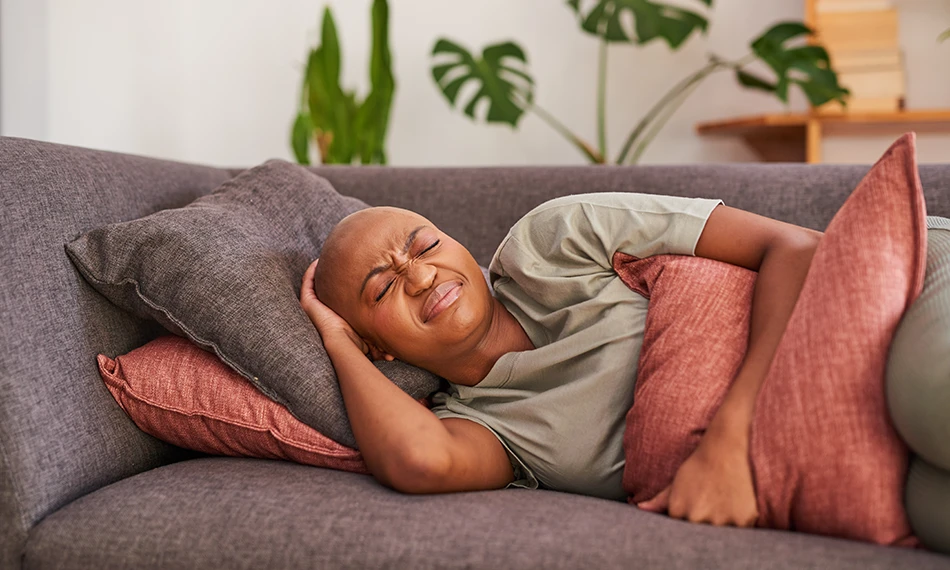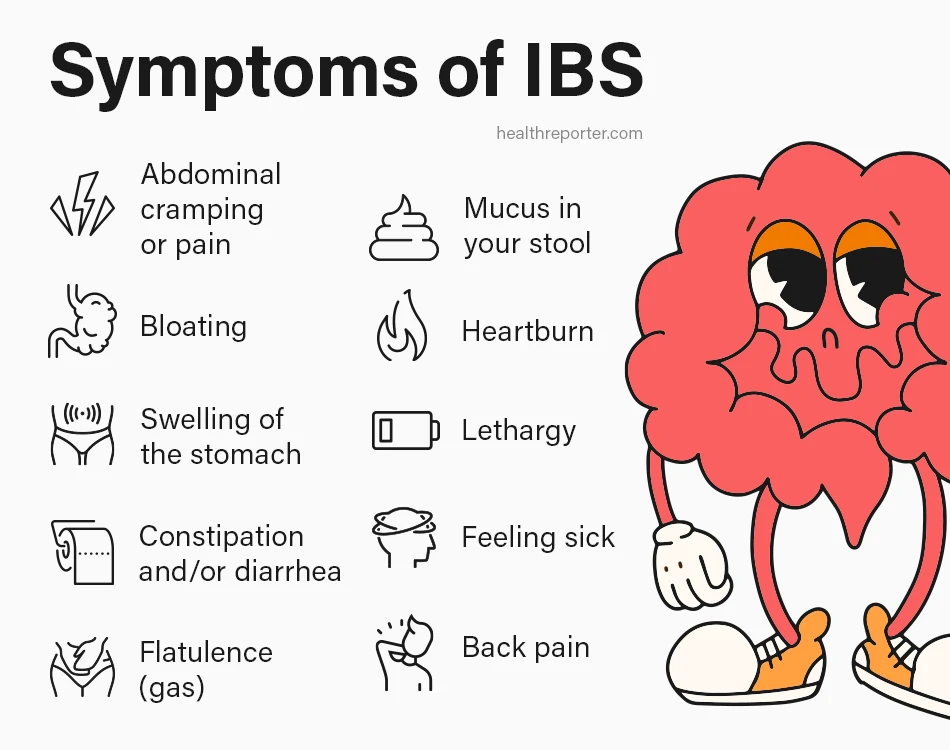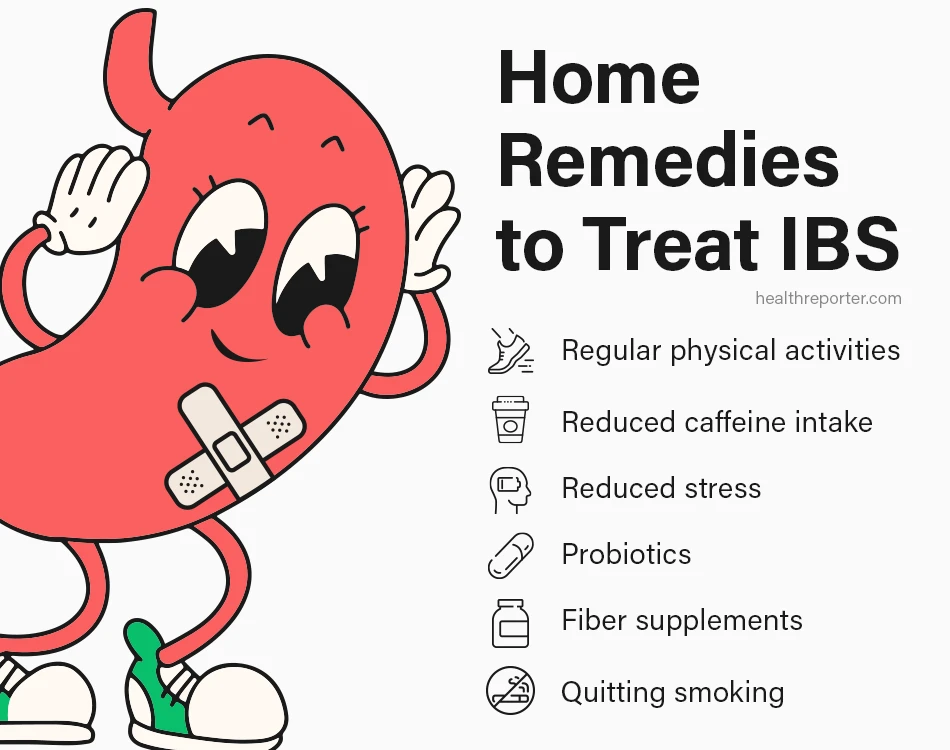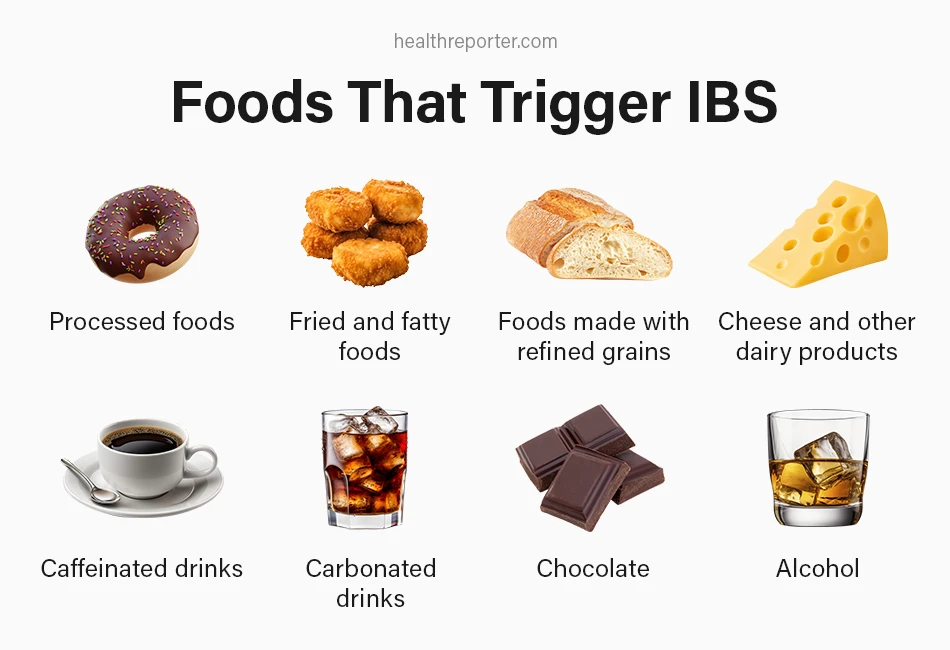Irritable Bowel Syndrome (IBS): Understanding the Mystery Behind Abdominal Pain
Irritable bowel syndrome is one of the most common gastrointestinal disorders affecting people of all ages. Find out what triggers it and how you can manage it.

Irritable bowel syndrome (IBS), also known as spastic colon, spastic colitis, or mucous colitis, can cause abdominal pain and changes to bowel habits.
While there is no cure, the right approach to managing this condition of the digestive system is crucial to preventing flare-ups.
Read on for an overview of irritable bowel syndrome, including other symptoms, causes, and science-backed home remedies to manage IBS.
What Is Irritable Bowel Syndrome?
Irritable bowel syndrome is a chronic condition that affects two organs of the gastrointestinal tract, the small and large intestines.
It causes recurrent attacks of abdominal discomfort and can change normal bowel movements leading to constipation or diarrhea.
Simply put, IBS makes your gut more sensitive. It can also cause muscle contractions within it that can be painful.
Types of irritable bowel syndrome
IBS is categorized according to its symptoms and triggers:
- IBS-C: Irritable bowel syndrome with constipation causes fewer bowel movements than normal.
- IBS-D: Irritable bowel syndrome with diarrhea causes more than a quarter of stools to be loose.
- IBS-M (or IBS-A): This is irritable bowel syndrome with mixed bowel habits, alternating constipation, and diarrhea.
- Post-diverticulitis IBS: IBS may also occur after an infection or inflammation with diverticulitis, a condition that affects the lining of the intestine.
- Post-infectious IBS: Irritable bowel syndrome may occur after a bowel infection. When this happens, it often comes with chronic inflammation.
Although IBS can cause significant discomfort, it does not usually damage the intestines or cause colon cancer. Research shows that IBS doesn’t increase the risk of colon cancer or other serious digestive and kidney diseases. However, IBS may occur in dialysis patients.
IBS vs. inflammatory bowel disease vs. celiac disease
IBS shares similar symptoms with celiac disease, a condition in which the immune system is very sensitive to certain foods that have gluten. Celiac disease may cause gut damage and poor nutrient absorption.
IBS may also have similar symptoms as inflammatory bowel disease. More specifically, inflammatory bowel disease refers to two conditions, Crohn’s disease and ulcerative colitis.
However, unlike inflammatory bowel disease, IBS doesn’t cause inflammation of the intestines. Nor does it normally damage the intestines.
What Are the Symptoms of IBS?

IBS symptoms vary from patient to patient and are not always limited to the gut. For example, IBS can also cause back pain. Symptoms can range in intensity from mild to life-disrupting.
- Abdominal cramping or pain
- Bloating
- Swelling of the stomach
- Constipation and/or diarrhea
- Flatulence (gas)
- Mucus in your stool
- Heartburn
- Lethargy
- Feeling sick
- Back pain
These symptoms may come and go or occur continuously. In many IBS patients, bowel movements may relieve abdominal discomfort and gas.
Good to know: IBS doesn’t cause weight loss directly. But some IBS patients may experience weight loss if they follow a strict diet or eat less to improve symptoms.
When should you see a doctor for IBS pain?
Check with your doctor if symptoms of IBS last for more than a few days, reoccur, or if you develop other symptoms. Even if the pain is only moderate, seeing your doctor can rule out other conditions.
Your doctor will also be able to offer useful tips that can help you manage the specific type of IBS you may have developed based on your bowel symptoms.
See your doctor right away if you experience weight loss, lack of appetite, nausea, vomiting, persistent pain, or rectal bleeding.
What Causes IBS?
Researchers believe that IBS is a disorder arising from the gut-brain interaction. It may occur because of signaling issues between the intestines and the brain.
The intestines contain millions of nerves in their lining. These nerves help control digestion, move bowels, and more.
Think for a moment of the expression “gut-wrenching.” It’s not only that our emotions seem to occur in the gut. But emotional stress, anger, anxiety, and other feelings can affect the gut.
Imbalances in the gut microbiota may also contribute to IBS. The gut is home to millions of beneficial microbes that support the immune system. Viral or bacterial infections, diet, or antibiotics may throw gut microbes out of balance, leading to a variety of health problems, including IBS.
In the end, researchers haven’t pinned down the exact cause of IBS yet. From stress and bacteria to imbalances in the microbiome, multiple factors may be at play.
How Is IBS Diagnosed?
There is no test for irritable bowel syndrome. Doctors diagnose IBS after listening to the patient history and performing physical and lab tests to rule out other conditions.
These tests may include blood tests, stool tests, and in rarer cases, upper digestive tract endoscopy and colonoscopy.
Doctors diagnosing IBS use the latest Rome guidelines to ensure that what the patient experiences matches the most common IBS symptoms.
According to these guidelines, an IBS diagnosis is accurate if abdominal pain occurs at least one day per week in the last three months.
Two of the following symptoms must also occur: stool frequency changes, stool appearance changes, or abdominal pain during bowel movement.
7 Home Remedies to Treat IBS
At this point, IBS cannot be cured. Be wary of any “miraculous cures,” such as exotic herbal remedies.
With that in mind, there are effective ways to alleviate symptoms of IBS and manage the condition. It’s also possible to prevent it in the first place.
Many of the following remedies also support the health of your digestive system and digestive tract and regulate bowel movements.

#1 Regular physical activities
Regular exercise can ease IBS symptoms and support overall health. If you are currently not exercising at all, aim for at least 150 minutes of moderate-intensity physical activity.
Walking, aerobics, and cycling are some of the physical activities effective at improving IBS symptoms.
#2 Reduced caffeine intake
Caffeine increases the stress response by elevating the levels of the hormones cortisol and epinephrine. Caffeine consumption has also been linked to a higher risk of IBS in women and overweight or obese people.
So is coffee a big no-no for patients with IBS? Yes. What’s more, coffee may cause bloating.
Caffeine also occurs in energy drinks, cola drinks, chocolate, and green, black, and white tea. If you have an irritable bowel, it’s best to avoid these.
#3 Reduced stress
Stress can make IBS worse or cause flare-ups through its influence on the gut-brain axis and microbiota. It’s a serious risk factor for bowel inflammation. Managing stress effectively is crucial to treating IBS.
IBS patients can benefit from guided meditation, practicing deep breathing, talking to others, avoiding alcohol, and making time to unwind. If you’ve experienced trauma or difficult events lately, such as a loss in the family, mental health therapies may indirectly help improve symptoms of IBS.
#4 Probiotics
Probiotics provide strains of beneficial bacteria. A recent Korean study suggests that people with IBS have a lower gut microbiome diversity.
Probiotic supplements are safe and effective for IBS, especially when used for less than 8 weeks. For example, probiotics can help with bloating.
For greater benefits, consider taking a higher dosage of a single probiotic strain. Compare all your options to find the best probiotic for bloating.
Good to know: Probiotic foods like yogurt, kefir, or sauerkraut may also help.
#5 Fiber supplements
Increasing fiber intake to 20–35 grams daily may help regulate bowel movement and reduce pain and gas.
Fiber can reduce constipation by increasing the bulk of stools and softening them. Fiber may also help promote the growth of beneficial bacteria in the gut and support overall gut health.
Non-fermentable fiber supplements like psyllium husk and calcium-polycarbophil can be effective for both constipation and diarrhea. Find out more about the best fiber supplements for IBS.
You can also eat more fiber-rich foods such as nuts, whole grains, seeds, lentils, and dark leafy greens.
Tip: The best time to take a fiber supplement is throughout the day.
#6 Quitting smoking
Quitting smoking may improve gastrointestinal symptoms. However, more research is necessary to better explain the link between cigarette smoking and IBS.
Quitting smoking may also have other health benefits that can help people living with IBS. It may relieve stress and anxiety and promote the growth of beneficial bacteria in the gut.
#7 Avoiding certain foods

Many foods can trigger IBS, including:
- Processed foods
- Fried and fatty foods
- Foods made with refined grains, like white bread or white pasta
- Cheese and other dairy products
- Caffeinated drinks
- Carbonated drinks
- Chocolate
- Alcohol
Eating too much insoluble fiber, which is found in otherwise healthy foods such as fruits and vegetables, can also make IBS worse. Instead, eat more foods with soluble fiber, such as green beans, avocados, sweet potatoes, chickpeas, lentils, and blueberries.
It’s important to avoid large meals – even when the foods on the plate are healthy – as these can cause bloating and abdominal discomfort.
Ideally, try to eat 5–6 small meals scheduled throughout the day. Avoid meals at night. Allow your stomach at least 3 hours to digest the last meal of the day before going to bed.
What Medications Can Treat IBS?
Irritable bowel syndrome is treated with medication that reduces abdominal discomfort and helps with bowel movements. Your doctor will prescribe the right IBS medications depending on your form of the condition.
- Laxatives: Osmotics, stimulants, and magnesium-based laxatives can help improve stool texture and frequency. These include PEG 3350, senna cascara, and milk of magnesia.
- Antidiarrheals: People with IBS that causes diarrhea may benefit from drugs like Loperamide that slow gut transit and decrease the movement of fluid into the intestines.
- Antispasmodics: Drugs like direct smooth muscle relaxants and anticholinergics suppress smooth muscle contractions in the digestive tract. This helps reduce abdominal pain.
- Secretagogues and prosecretory agents: These drugs can help ease pain and bloating by increasing movement and fluid secretion in the intestines. They include linaclotide, plecanatide, and lubiprostone.
- Retainagogues: Drugs like Tenapanor block sodium absorption in the gut. As a result, the intestines retain more water, which speeds up intestinal transit time and leads to softer stools.
- Agonists and antagonists: These drugs target serotonin receptors in the gut. Serotonin plays a role in the movement of food in the intestines, the sensation of fullness, and the secretion of digestive fluids, enzymes, and mucus.
While some of these IBS medications are available over the counter, it’s important to discuss IBS treatment options with your doctor.
FAQs
The most common IBS symptoms are abdominal pain or bloating, changes in bowel movement frequency, and stool changes.
The exact cause of irritable bowel syndrome is not known, but common triggers include stress, infection, and poor diet.
IBS cannot be cured, but dietary changes, stress management, and medication can help manage the condition.
Irritable bowel syndrome affects up to 16% of the US population. 2 out of 3 people living with IBS are female.
A Word From an MD
IBS is a lifelong condition. But there is a lot you can do to relieve irritable colon symptoms and reduce flare-ups.
Cook homemade meals using fresh ingredients. Focus on non-processed foods high in soluble fiber and reduce your caffeine intake. These are easier on your digestive system and promote a healthier bowel movement.
Keeping a diary of what you eat can help you identify IBS triggers you can then avoid. Just as important is to schedule exercise time and periods of relaxation. Remember that stress is closely associated with this condition.
To reduce bloating and cramps, add oats to your diet and take one tablespoon of linseeds regularly. Lastly, avoid fatty and spicy food, which may irritate your bowel.
Conclusion
Irritable bowel syndrome may cause pain, discomfort, and changes to bowel habits. Although chronic and incurable, it can be effectively managed.
Since there are several types of IBS, it’s important to get a correct diagnosis. This will inform medication and treatment choices.
And because IBS is associated with stress, it helps to think beyond relieving symptoms like cramps or bloating. IBS flare-ups can be a sign that your work and lifestyle are placing too much stress on your body.
In the end, while unpleasant, IBS can be an opportunity to pause, consider your way of life, and improve your diet and lifestyle to boost your overall health.

















































 Select your language:
Select your language: 









